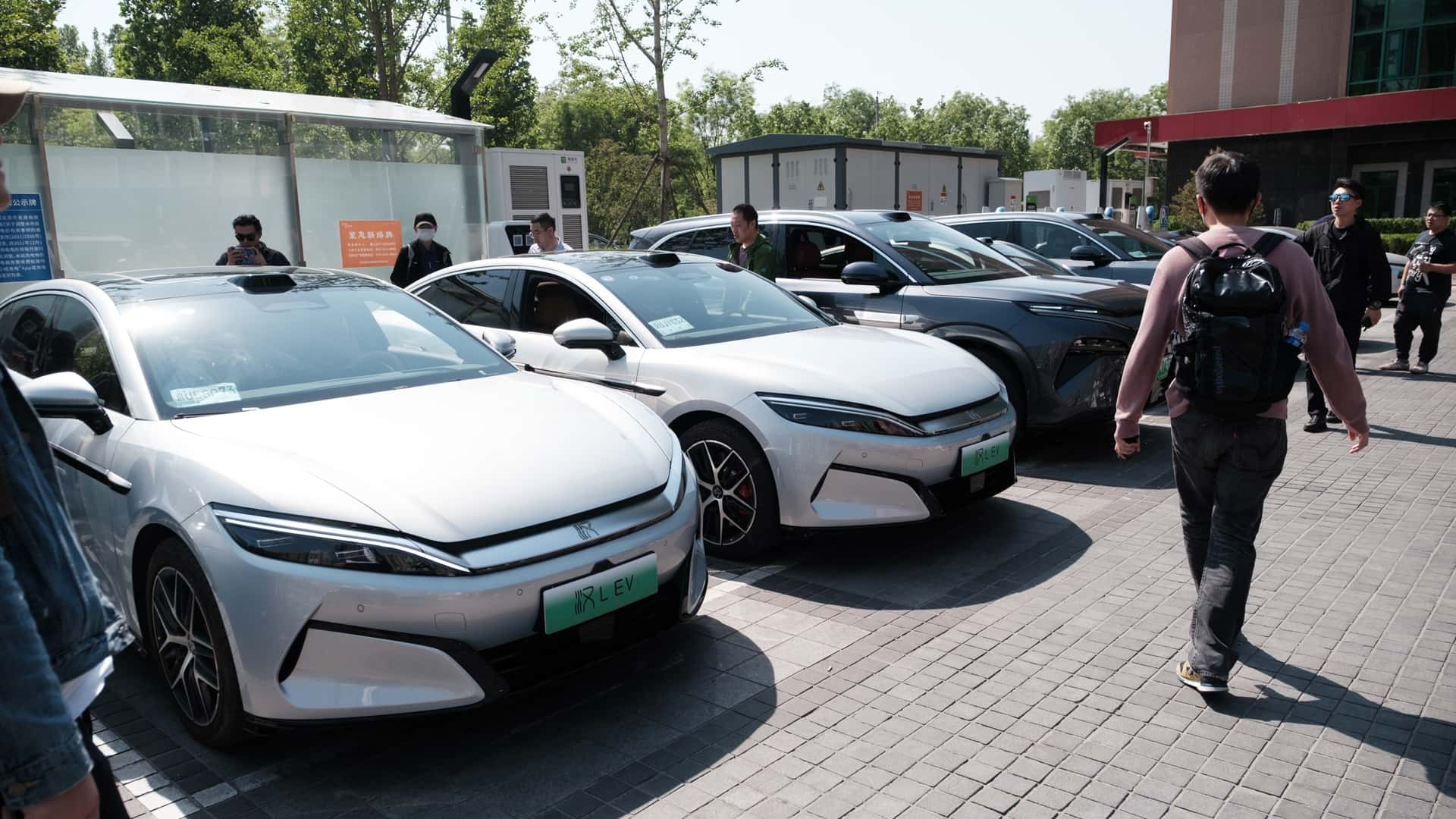
- A study published by AutoPacific says that 65% of Americans surveyed are familiar with Chinese car brands, up from 52% in 2024.
- Similarly, more Americans would consider buying from a Chinese brand if it were sold here.
- Concerns around national security and data privacy still remain high.
There’s a literary device called “haunting the narrative.” That is, when a character barely appears in the main story, yet their presence is felt all the same. Well, you could say that Chinese cars are haunting the American auto industry’s narrative.
There are no Chinese cars on sale on American roads, aside from the rare China-made Polestar, Volvo or Buick. Yet the country’s global presence makes it impossible to ignore. Tech-forward and cheap to buy (in their home country, at least), Chinese cars are an existential threat to American automakers. So the U.S. government has gone to great lengths to keep China at bay and protect the interests of domestic car brands.
The forthcoming ban on cars with certain Chinese-developed software and hardware is one big way that the government plans on keeping Chinese cars off American roads—for national security reasons, it says. Tariffs north of 100% essentially amount to a ban on Chinese electric cars.
Nevertheless, Americans are becoming more aware of and open to Chinese car brands. A recent study published by the market analysis firm AutoPacific shows that the perception of Chinese cars and brands only continues to improve, despite tariff woes and geopolitical tensions putting the U.S.-China relationship on shaky ground.
According to the study, people are becoming more familiar with Chinese brands. Compared to last year, 65% of participants are familiar with some Chinese brands. This is up from 52% last year. On top of that, the portion of buyers willing to consider a Chinese brand is up a fair amount too, from 41% in 2024 to 52% in 2025.

Interestingly, Huawei led the pack as the most considered brand by those surveyed. Twenty-seven percent of respondents familiar with Huawei would consider buying one of its cars. Xiaomi took second place with 23% and BYD claimed third with 19%. Great Wall Motors came in at 16%, Geely at 13% and Nio in the rear with 13% of those familiar willing to buy one of its cars.
Still, there are great concerns with data privacy and national security risks—but they’re coming down. In 2024, both categories were above 80%. By 2025, concerns about risks of security dropped from 80% to 77%, while national security risks went from 82% to 79%. Both are still high, but are falling year over year.
“We’ve seen awareness of various disruptors like BYD, Geely, Huawei, and Zeekr grow substantially year over year in our research, and a lot of that can be attributed to an increase in media coverage of these brands’ vehicles (both within the automotive media space and outside it), as well as likely a greater occurrence of in-person engagement and interaction,” Robby DeGraff, manager of product and consumer insights at AutoPacific, said in an email.
This is all “despite fear-mongering language and rhetoric about China from the [Trump] administration,” he continued.

What DeGraff said tracks with my experience, too. Chinese car coverage has become ubiquitous. It’s not hard to find a TikTok, Instagram or Facebook Reel post of someone with their take about a Chinese car. Heck, even mainstream news outlets have started to take notice of the strides that China has made with its EV industry. I’ve had more than a few friends send me images of Chinese cars they’ve spotted overseas traveling. Usually, the conversations fall along the lines of “wow, this looks pretty good. When can we get this here?”
Chinese car brands used to be known for making low-quality clones, or building Western cars under license for markets that weren't Europe or North America. Now, the country has taken the EV industry by storm. The cars are making their way outside of China and are generally proving their worth, even if some brands and models aren’t always pitch-perfect in execution.
Will Chinese cars ever come to the United States? Right now, thing aren’t looking so good. But if they ever do—all of the signs point to success.
Contact the author: kevin.williams@insideevs.com








